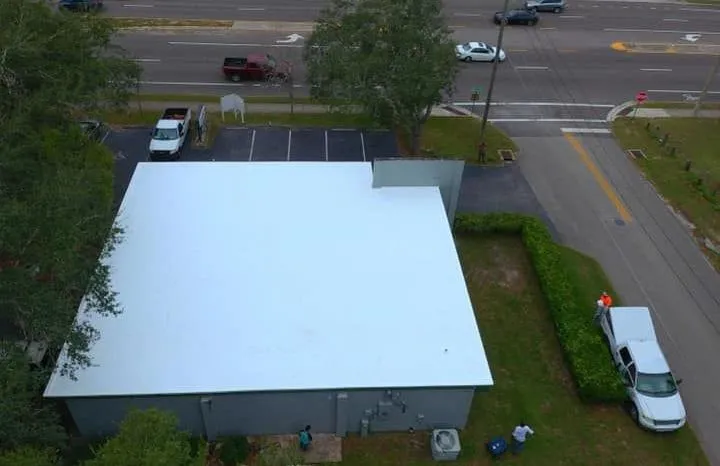The following blog post will serve as an introspective guide to understanding Section 179 and navigating its limitations to save the most money on your next commercial roofing project.
Section 179 (opens in a new tab) is part of the Tax Cut and Jobs Act and permits businesses to deduct the entire purchase price of qualifying equipment from their taxable income for the current tax year. While the list of qualifying purchases is extensive, notable elements include improvements to non-residential property, including roofing upgrades, HVAC systems, fire protection systems, and more. This tax provision is a boon to businesses because it allows them to recoup substantial funds on their taxes. By enabling the immediate benefit from such expenditures in the tax year they are made, it incentivizes businesses to invest in the improvement of their facilities, including the all-important roof.
Like all tax deductions, Section 179 possesses its caveats. Among the most notable limitations delineated by the policy are the following:
- The equipment deductions have a dollar limit of $1,600,000
- The equipment must be purchased (or financed/leased) and placed into service between January 1 and December 31 of that year.
- Suppose a taxpayer puts more than $2 million worth of Section 179 property into service during a single taxable year. In that case, the Section 179 deduction is reduced by the amount exceeding the threshold, and the amount allowed as a deduction can’t exceed the aggregate amount of taxable income for the business during that year.
The Intersection of Section 179 and Roofing
A pertinent question here is, “Are roofing projects eligible for Section 179?” The answer is a resounding yes. The IRS includes roofs as an example of improvements made to nonresidential real property. This means that the expense of a new commercial roof, repairs, or even a full replacement can be deducted under this section.
Consider a business undertaking a $250,000 roof replacement or recovery project for a 41,500-square-foot roof area. Now, if the roofing upgrade results in a 10% saving in energy costs, it qualifies for a $.60 per square foot tax deduction, providing a $24,900 tax deduction. This reduces the actual investment to $225,100 after the tax deduction.
Taking Advantage of Section 179
The benefits of Section 179 are undeniable, and businesses are encouraged to take advantage of this provision as soon as possible. The reason for this sense of urgency lies in the changing nature of this tax code. As of January 1, 2023, the bonus depreciation is set to decrease from 100% to 80%, with further reductions of 20% annually through 2026.
As an illustration, a company replacing a roof in 2022 costing $50,000 could deduct the full amount from their 2022 taxes. However, if the same roof were installed in 2023, only $40,000 would be deductible from their 2023 taxes. Thus, to reap the maximum depreciation benefits, businesses should plan their roofing projects while the depreciation rate is high.
Key Takeaways: Deductions for New and Existing Roofs
In a nutshell, under Section 179, businesses can deduct the cost of a new commercial roof up to $1,160,000. Moreover, the original cost of an existing roof, less accumulated depreciation, can be written off when being replaced. Businesses may also deduct the cost of routine repairs to their existing roof. However, be aware that this deduction is also limited by your business’s net income for the year—you can’t deduct more money than you earned.
Undeniably, understanding these tax provisions can significantly impact a company’s bottom line. A strategic and holistic plan for roof repairs, replacements, or installations should be a crucial part of any business strategy. And, as always, consult with a professional advisor to ensure you’re maximizing these benefits while staying compliant with the tax laws.
Commercial Roofing Made Easy at Worthman Roofing
While tax matters might seem monotonous, the prospect of substantial savings makes understanding them essential. After all, who wouldn’t want to use any help possible to keep a roof over your head? At Worthmann Roofing and Gutters, we can take care of all your roof repair and replacement needs. We do not give any tax advice but we can talk about how tax deductions are being used to save on commercial roofing projects. For more information on our services or any question, contact us at sales@worthmannroofing.com (opens in a new tab).



